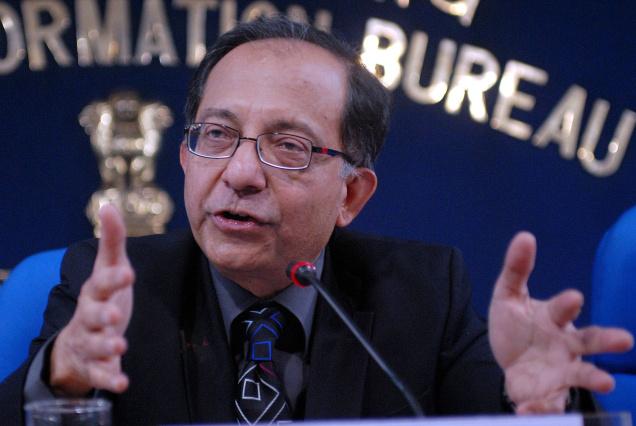
Washington, April 22: After the flak over his remarks to a think tank here, chief economic advisor Kaushik Basu feels India will see some important reforms in the next six months, including on subsidies and may be partial diesel decontrol and FDI in retail.
However, he feels the biggest reform GST (Goods and Services Tax) may be tougher because it is good and not everybody wants it to happen under the present regime.
Basu, whose remarks on Wednesday that no big ticket reform is possible till 2014 elections raised a political flutter back home, said there is a serious risk of another European crisis in 2014 and appropriate measures need to be taken to avert another global economic crisis.
"Among the reforms that will happen, I hope, is, subsidy reform. The finance minister talked about this in his budget. We will try to use the UID system that we are developing to cut down leakage in subsidy," he said in an interview to this news agency.
"In India the leakage is so big that if we can cut this down, it will help cut down our fiscal deficit ... So that's a very important reform, which I think will happen," he said.
On FDI in multi-brand retail, he said, "you can't be 100 per cent sure, but I feel that it's very likely that it will happen. This can be a big boost to Indian farmers and small producers. It will also have an uplifting on investor confidence."
The other one, which is more difficult politically, is diesel decontrol, Basu said. "May be what can happen is a partial decontrol. This is not a very well defined term. There are different kinds of partial decontrol that you can have.
"What we should ideally do is to have a small subsidy that is fixed per liter. This will partially shelter the consumer but will allow the rise and fall of global price to be mirrored in India. This is essential for market efficiency," Basu said.
The chief economic advisor said his remarks at the Carnegie Endowment for International Peace were clear and addressed towards the possible European crisis and had nothing to do with the 2014 general elections as being reported in the media.
"There is nothing to clarify. I meant everything that I said; the lack of clarity was in its reporting," he said, adding around this central message, he talked about India.
Basu said in his lecture on Wednesday he had said that India needs to strengthen itself for the possible European crisis of 2014.
"Thanks to the strains of coalition politics there is a slowdown in reforms. Nevertheless, we will see some important reforms within the next six months.
"This is in our political and economic interest. But the biggest reform, the GST, is going to be much tougher because there you need a constitutional amendment," he said.
In fact, he said, an interesting reason why GST is so difficult is because all parties realise this is very good.
"Therefore, not everybody wants it to happen under the present regime," Basu said.
He said 2014 was significant in his talk because of Europe and had nothing to do with the Indian elections. "We in India love politics so much that for us 2014 is nothing but the year of Indian general elections. India has gone through a difficult year with some slowdown in growth," he noted.
"This has three causes - the European crisis, our difficult battle with inflation and the slowdown in decision-making and reforms and the disruption of Parliament that we have seen in the last year," he said.
"There is a serious risk of another European crisis in 2014," the chief economic adviser said.
This, he said, was the central theme of his talk at the Washington-based think tank.
"This is not hand-waving but is based on analysis. In December 2011 and February 2012, the ECB ( European Central Bank) pumped in about $1.3 trillion of money into Euro Zone banks. This immediately calmed the markets and I think what ECB did was right," he said.
"But you have to remember that these are loans that have to be repaid in three years. So if Europe does not manage to reform its fiscal system, then three years from now, when the time comes for this huge amount of money injected into the system to be withdrawn, we could see another European crisis, with shock waves for the entire world," Basu said.
"I argued we have to take measures against this so that we can avert the global crisis of 2014. That was the gist of my talk," Basu said.






Comments
Add new comment